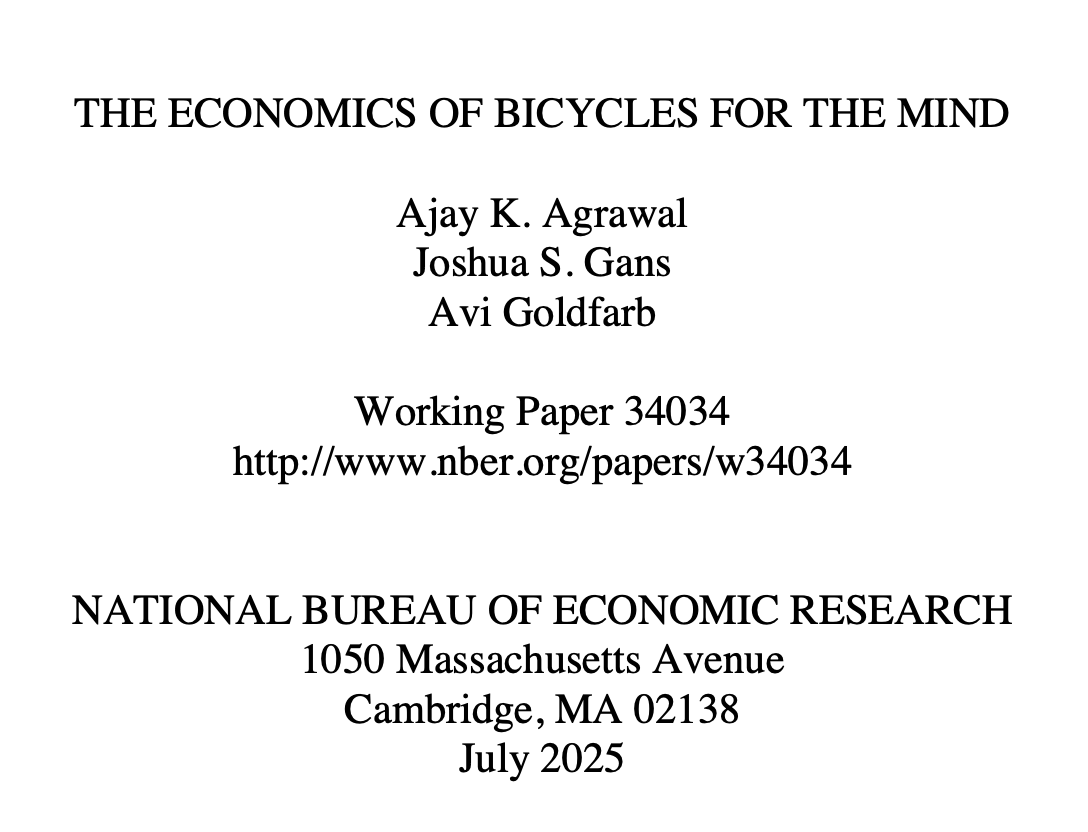Abstract #
Steve Jobs described computers as “bicycles for the mind,” a tool that allowed people to dramatically leverage their capabilities. This paper presents a formal model of cognitive tools and technologies that enhance mental capabilities. We consider agents engaged in iterative task improvement, where cognitive tools are assumed to be substitutes for implementation skills and may or may not be complements to judgment, depending on their type. The ability to recognise opportunities to start or improve a process, which we term opportunity judgment, is shown to always complement cognitive tools. The ability to know which action to take in a given state, which we term payoff judgment, is not necessarily a complement to cognitive tools. Using these concepts, we can synthesise the empirical literature on the impact of computers and artificial intelligence (AI) on productivity and inequality. Specifically, while both computers and AI appear to increase productivity, computers have also contributed to increased inequality. Empirical work on the impact of AI on inequality has shown both increases and decreases, depending on the context. We also apply the model to understand how cognitive tools might influence incentives to automate processes and allocate decision-making authority within teams.
